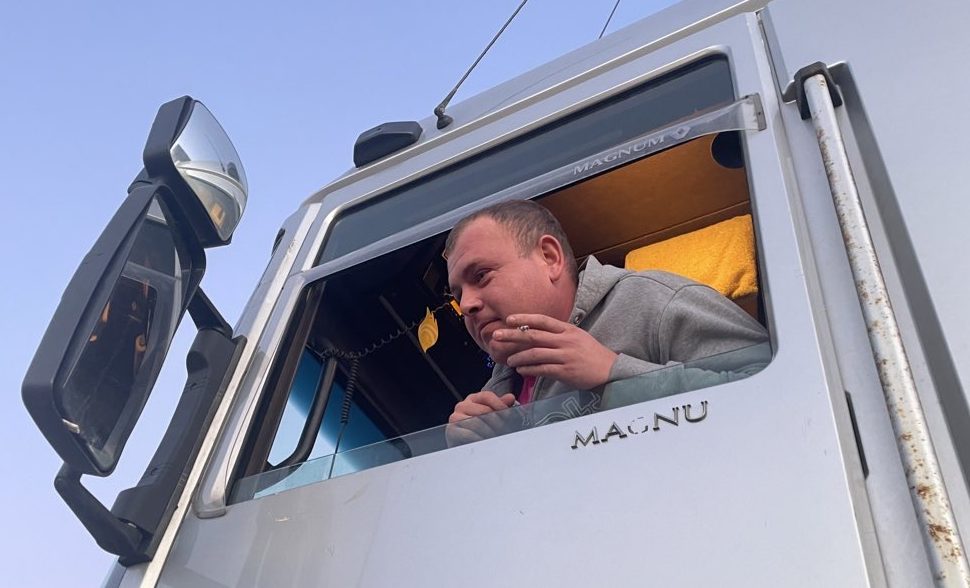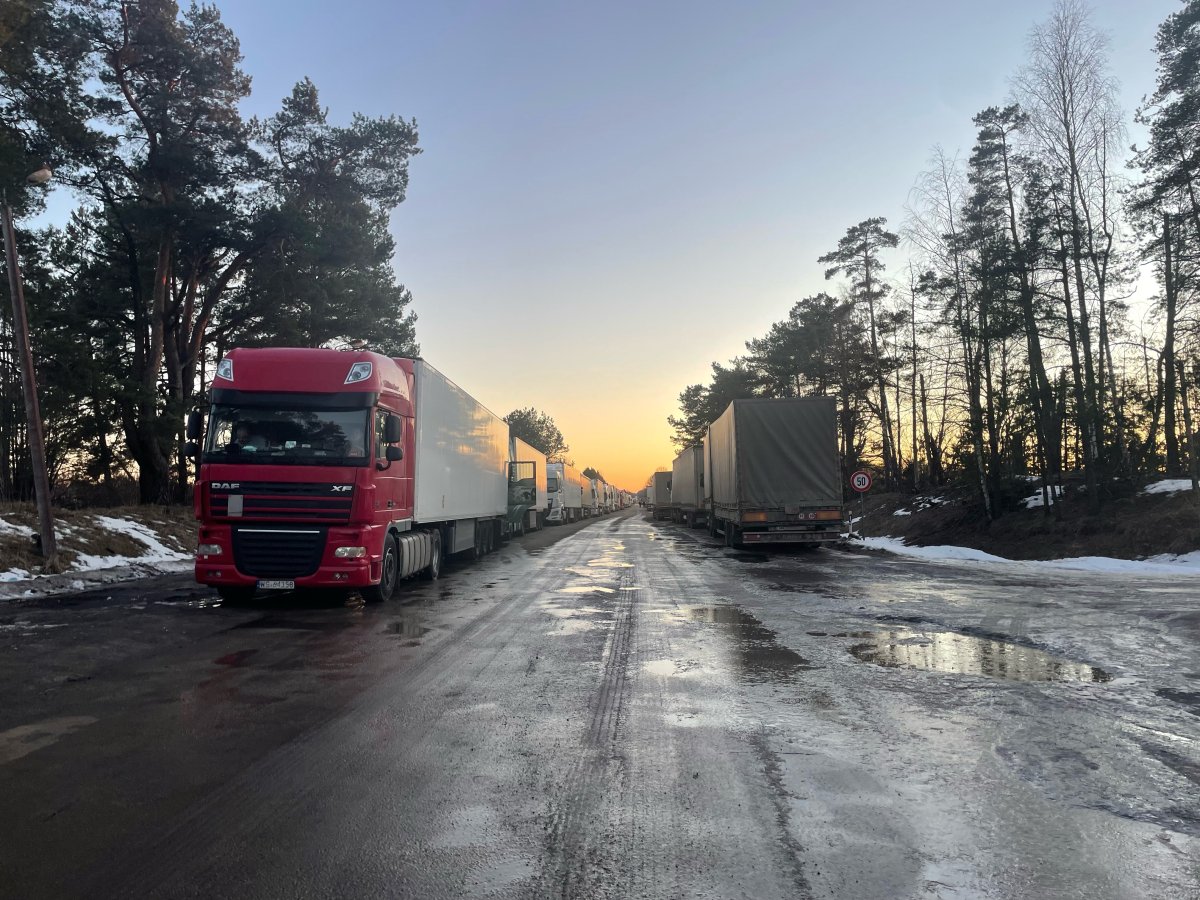Russian truck driver Dimitri Bikov worries that when he returns home, he may not be allowed to leave again.

Bikov is one of dozens of truckers stuck at the border crossing between Latvia and Russia, heading to Moscow — creating a logjam that now stretches several kilometres along the side of the road.
Drivers say they have been camped out in their cabs for days, as Russian sanctions impact customs processes in Latvia, a country on the geographical cusp of the war in Ukraine and sharing a border with both Russia and Belarus.
This is a trucker convoy of a different variety.
But many drivers here, such as Bikov, say the implications of war extend far beyond not being able to use Apple Pay.
“I’ve signed a paper to say I can be drafted,” he says, through a translator. “I’m afraid that when I go home, I could be sent to war.”
Bikov is resolute in his opinion that Russian President Vladimir Putin’s war in Ukraine, which has now entered its seventh day, must stop. Not only so he can avoid conscription, but also because of the mounting number of casualties.
It’s currently unclear how many people have been killed in the war, due to conflicting reports. Ukraine’s State Emergency Service said Wednesday that more than 2,000 Ukrainians had so far lost their lives, but this has not been independently verified.
“This has to be stopped. We need to live in friendship somehow. Because it’s not only soldiers who die, civilians die too,” Bikov says. “What’s the difference, Russian or not Russian, we are all people. We’ve got two legs, two arms, a head, two ears, you see. It should be ended.”
'We're all finding common ground'
The mood at the border crossing, located about 250 km from the Latvian capital of Riga, is sombre. Trucks are switched off when they’re not inching forward, and the road alongside them is empty. Drivers wait alone in their cabs.
Licence plates are predominantly Russian or Belarusian, with several Latvian and one Ukrainian, the latter with no visible driver, parked on the opposite side of the road after leaving Russia.

Get daily National news
Drivers who were willing to talk say they don’t support the war in Ukraine, regardless of their nationalities.
Viktor Silian, a Belarusian driver situated about halfway up the queue, says he’s been waiting two days to cross the border.
Silian says the wait is usually between five and 10 hours and border agents had told him Russian sanctions had now extended that exponentially.
Despite being from Belarus — Russia’s closest ally in the war and a springboard for Russian troops entering Ukraine — Silian says he does not support the invasion.
“Here in this queue we’re of all different nationalities, and we’re all finding common ground and communicating in a normal manner,” he says. “It should be like that in the world.”

Silian’s comments ring true. A Latvian driver jumps out of a Belarusian driver’s cab to return to his own truck, in order to move it forward a few metres as the first truck in line crosses the border.
As we walk by, the Belarusian driver calls out of his window to ask if we’re selling cigarettes, as he wasn’t expecting to wait this long and he’s on his last one. The roads aren’t wide enough for any trucks to turn around and go back to the nearest town to buy supplies.
Russian truckers face abuse on the road
About a dozen trucks further down the queue, Bikov, who has been parked for 20 hours, says he now faces abuse, as well as death threats, simply for being Russian.
“I am driving through Lithuania and I get the finger,” he says.
“The older people are more calm, but the younger ones are aggressive and see us as enemies as soon as they see the Russian plates.
“This isn’t war here, but when you leave home, you don’t know if you’re returning home.”
He says, as a trucker, he is simply trying to do his job and provide for his wife and children.
Bikov is heading for Moscow to load his truck up and then return to Kaliningrad, the small Russian enclave on the Baltic Coast, sandwiched between Poland and Lithuania.
He worries that he’ll be conscripted when he returns to Kaliningrad.
But Bikov is staunch in his opinion that Putin’s actions have “nothing to do with the people of Russia.”
“We are not involved. We are people. Who is at war? The state,” he says.
The sentiment is shared by truckers waiting to cross into Belarus, 150 km to the southwest of the Russian border. The line here is short, with Belarus yet to face severe sanctions for its role in the war.
One Belarusian driver, who did not want to be named, says he has relatives in Ukraine he was concerned about. When asked if he was worried about the war, he said, “Of course.”
“Every man should be worried, but I am hoping for the best.”
- 12-year-old shoots, kills black bear attacking his dad in Wisconsin
- Mohamed Al-Fayed, whose son died with Princess Diana, accused of multiple rapes
- Yellowstone Park tourist burns leg after going off trail near Old Faithful
- Hezbollah chief says Israel crossed ‘red lines’ with exploding device attacks











Comments